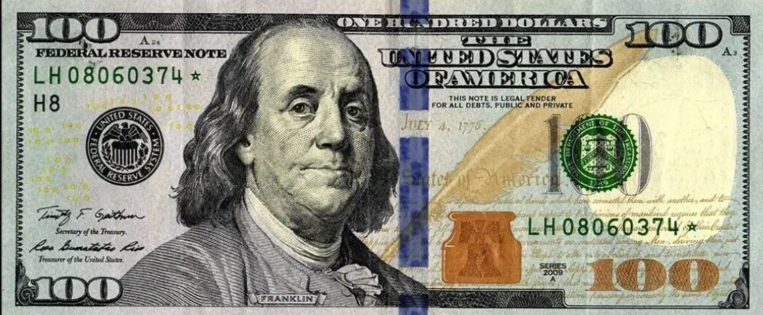News
 U.S. Announces Record Financial Support Package for Argentina
- 24/09/2025 » 14:07 by cronywell
U.S. Announces Record Financial Support Package for Argentina
- 24/09/2025 » 14:07 by cronywell
U.S. Announces Record Financial Support Package for Argentina ahead of crucial October elections
Bessent confirms negotiations for US$20,000 million swap line and massive support for Milei's government
The United States on Wednesday announced an unprecedented financial support package for Argentina, including a $20 billion swap line and the purchase of Argentine sovereign bonds, in a decision that reflects Washington's full support for President Javier Milei's economic project just weeks before the midterm legislative elections.
U.S. Treasury Secretary Scott Bessent confirmed through his account on the X platform that "the Treasury is currently in negotiations with Argentine officials for a $20 billion swap line with the Central Bank," adding that they are working "in close coordination with the Argentine government to prevent excessive volatility."
A comprehensive bailout to stabilize the Argentine economy
The announcement represents the largest commitment of U.S. bilateral financial support to Argentina in decades. In addition to the currency swap, Bessent explained that Washington is prepared to buy Argentine dollar-denominated bonds in both the secondary and primary markets, and will provide a significant reserve credit through the Exchange Stabilization Fund.
"The United States plans to extend a $20 billion swap line to Argentina and is ready to buy the country's foreign bonds, providing much-needed financial support to President Javier Milei as he tries to regain investor confidence and stop a run on the peso," Bloomberg reported.
This measure comes at a critical time for Milei's government, which faces legislative elections scheduled for October 26, 2025, where half of the Chamber of Deputies and a third of the Senate will be renewed. These will be the first midterm elections during Milei's presidency.
Trump's endorsement strengthens strategic alliance
The financial support has the direct endorsement of President Donald Trump, who met with Milei on the sidelines of the United Nations General Assembly in New York. During the meeting, Trump said that the United States will help Argentina, although he considered that a total financial rescue would not be necessary, according to diplomatic sources.
At the same time, the World Bank announced that it will accelerate 4,000 million dollars in public-private investments previously planned for Argentina, demonstrating the international consensus of support for the reform program of the libertarian government.

Markets respond with optimism
Argentine financial assets experienced their third consecutive day of increases after Bessent's announcements. Sovereign bonds, stocks and the Argentine peso posted significant gains, reflecting investors' optimism about the prospects of stabilizing markets.
The positive market response contrasts with the previous situation, where Argentine assets had experienced strong volatility due to uncertainties about the sustainability of the economic program and the proximity of the legislative elections.
Political context: between international support and electoral challenges
The announcement comes at a complex time for Milei from a political point of view. While a recent poll showed that about 39% of participants planned to vote for Milei's party, La Libertad Avanza, well ahead of the 28% who intended to vote for the main Peronist bloc, Union for the Homeland, the president suffered a significant electoral setback in September.
In the Buenos Aires elections, the candidate of Milei's La Libertad Avanza party, Diego Valenzuela, won 34 percent of the vote, far behind Gabriel Katopodis, the left-wing Peronist candidate who received 47.4 percent.
Analysis: A respite before the electoral test
For economic analysts, U.S. support represents a temporary relief but does not solve the underlying structural problems. Kimberley Sperrfechter, emerging markets economist at Capital Economics, noted that "U.S. Treasury Secretary Scott Bessent's renewed pledge to 'do whatever it takes' to support Argentina should give the government some breathing room ahead of the midterm elections in October. Most importantly, however, it does not solve the country's underlying problems, particularly the misaligned exchange rate."
Implications for global monetary policy
The U.S. commitment to Argentina also raises questions about the independence of the Federal Reserve and the political use of dollar swap lines. These mechanisms, traditionally used in global crises such as those of 2008 and 2020, are now being used as a foreign policy tool, leading to debates about the politicization of monetary policy.
Swap lines are conduits of dollar liquidity that the Fed opens in times of crisis to prevent the dollar-based global financial system from coming to a standstill, assuming its role as lender of last resort when the world needs scarce dollars.
Next steps and prospects
The legislative elections on October 26, 2025, will be crucial in determining whether Milei can maintain or expand his support base in Congress, which will be essential for the continuity of his economic reform program.
The success of the U.S. support package will depend not only on its technical implementation, but on the Argentine government's ability to translate this financial stabilization into tangible results that can be valued by the electorate at the ballot box.
With this unprecedented international backing, Milei now faces the challenge of turning financial support into political victories that consolidate his long-term economic transformation project.
